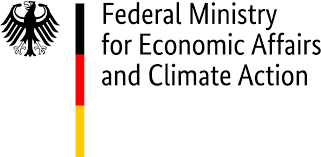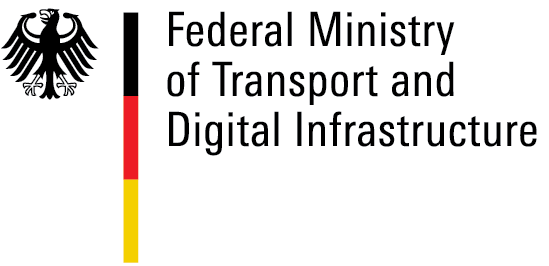We develop an agent-based simulation framework that delivers comprehensive energy system simulations.





Driven by environmental and climate needs, the power system faces a coupling of energy sectors in a wide range. Mobility plays a major role in that regard. While the impact of individual mobility is widely assessed, the power system implications of electrified heavy duty truck transport is a quite new field of research.
While the research project "HoLa - high power charging for long-distance truck transport" does focus on the establishment of a first high power charging infrastructure for trucks along German motorways, SIMONA is used as part of accompanying research. The necessity to charge trucks quickly might have a noticable impact onto distribution grid loading. Therefore, suitable tools for feasibility analysis in an early project stage of large scale rollout are needed. An elborate data-driven charging station model will ensure that the additional load is correctly accounted for alongside other time-resolved grid utilization patterns.
With the high penetration of distributed energy resources (DERs), the regulatory framework and grid operation procedure were adjusted in the amendment to the Grid Expansion Acceleration Act (NABEG 2.0). Involving the DSOs in congestion management is an important step in implementing the so-called “Redispatch”. These aim to avoid grid bottlenecks across all grid levels and thus make them more efficient, economical, and resilient.
The project “Redispatch 3.0” aims to improve the integration of low-voltage plants as well as the cooperation and exchange of information between DSOs and with TSOs. The goal is to further develop existing concepts for Redispatch 2.0 and to implement, test, and evaluate the approaches developed on a pilot basis.
With the expansion of renewable energies, more grid transparency is necessary in order to continue to guarantee a stable grid operation. Current distribution grids lack the sensory technology to deploy classical state estimation approaches. Therefore, an intelligent solution approach to create transparency is needed
In recent years the application of artificial neural networks to perform distribution system state estimation and thereby establish grid transparency, a combination called Neural State Estimation, has proofed promising. The project TRANSENSE aims at the development of a neural state estimation. Within this project we use SIMONA to generate training data in a simulation as a service architecture to generate the necessary training data for training a neural state estimation. Furthermore we try to use transfer learning approaches to develop a neural state estimation that is transferable to different grid structures.
Environmental efforts touch nearly every part of today's life and bring formerly seperated energy sectors closer together -- we call this sector coupling. One example is the provision of energy needs for individiual mobility by electric distribution grids in the course of proliferating electromobility. Each charging process has a quite significant impact to the grid loading in comparison to other, yet know technologies.
The research project NOVAgent, funded by the European Fund for Regional Development, makes advantages of SIMONA's system-centric and highly detailed simulation approach. It combines the distribution system simulation with a domain specific mobility simulator within a Co-Simulation environment to properly reflect the timely and spatially resolved mobility patterns of users and their implications to the distribution system state.
Racing to achieve global climate protection goals by 2050, the energy sector has witnessed a colossal transformation. In addition to increasing integration of renewable energy resources, various flexibility measures, rising investments in controllable loads such as electric vehicles, heat to power technologies lead to a surge of participants that affect the daily functioning of the power grid. Moreover, the decentralized nature of such assets distributes authority between consumers and grid operators, thus posing challenges in control coordination arising due to conflict of interests.
The goal of this project is to bring together all such participating actors into an agent-based simulation environment to analyze their interaction and achieve optimal coherence in such coordination. The main focus is to observe the impact of social acceptance on the prosumer interaction within the system. Furthermore, roles played by governance instruments such as regulations and incentives to drive investment decisions are also taken into account. All participants are then integrated with a co-simulation platform MOSAIK to further communication between the same.
The effects of increased system complexity can be seen on each level of the electric power system. However, today, grid expansion planning is mainly focused on single voltage levels and even on single parts of those levels. This is not only due to regulatory and business aspects, but foremost due to the high complexity of the planning task, which no longer can be handled by a human planning engineer.
Within the research project "Agent.GridPlan", funded by the European Fund for Regional Development, we approached this problem by setting up an optimization model together with our partners. SIMONA was used as an evaluation module for a genetic optimization algorithm. Elaborate guesses for grid extension measures got communicated to SIMONA, which evaluated the altered grid loading and therefore judged the suitablity of the proposed measures.
Nowadays, large scale integration of intermittent renewable energy infeed challenges the stable operation of power systems, where there as to be a perfect balance between in-feed and consumption at any time. Where in the past days controllable generation was used to achieve this balance, those control options get more and more replaced by more or less stochastically behaving distributed generators. Thus, getting access to control options on the demand side is crucial.
Within the third-party funded research project "Dynaflex" we took advantage of the strong invidiual and participant-centric design principle of SIMONA and equipped it with an elobrate model for a cold warehouse. Taking into account thermal energy contributions by weather and different streams of goods, we were able to show, how such a cold warehouse can be used to provide demand flexibility without violating temperature restrictions and thereby the quality of service provided by the customer.
In the ReCoDE project, a co-simulation platform is to be created to facilitate a holistic replication of current and future use cases in digitized energy systems. The integration of the use cases into existing reference models for the energy and communication systems as well as market mechanisms is of great importance here. This also applies to the corresponding reference scenarios as well as their further development. To realize this, existing industry standard tools have to be made interoperable while simulation process chains need to be made universally usable. In this project, simulation and co-simulation tools that are widely used in the industry (i.e. mosaik, SIMONA, OpSim, pandapower, OMNeT++/ns-3) are to be further developed in order to make reference scenarios of digitized energy systems quantitatively investigable in a consistent and flexibly exchangeable manner. In particular, the integrated simulation of information and communication technologies (ICT) enables new investigation possibilities with regard to the robustness and resilience of innovative automation approaches in the energy system. The web-based platform to be implemented in ReCoDE is to be developed as a reference platform that can be used in research and industrial projects in the long term and in a variety of ways, with a focus on open-source tools and scenarios.
Learn More